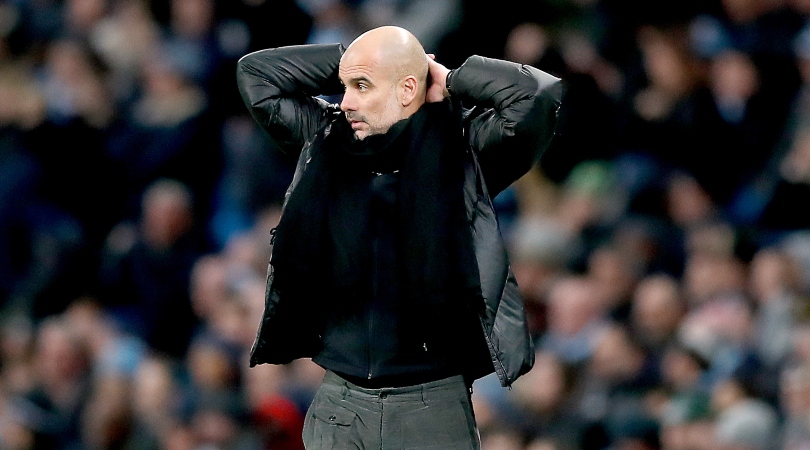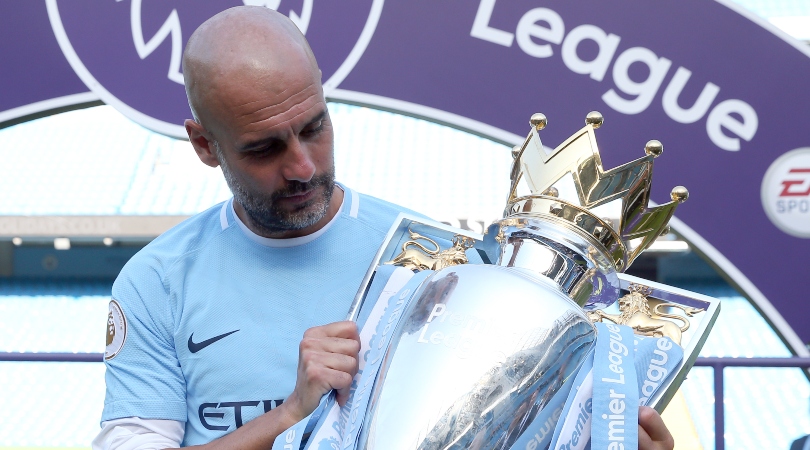Manchester City have a problem Pep Guardiola never thought he would face
That City have so much individual talent has papered over the fact that the team structure is beginning to malfunction, writes Richard Jolly

One of Pep Guardiola’s first acts in management was a symbolic sacrifice. Exit Ronaldinho, banished from Barcelona to AC Milan. If it was a sign of football’s generation game, a shift to build a team around a 21-year-old called Lionel Messi, it was also an attack on individualism. Farewell to the flair player who rarely tracked back. Hello to a team of scurrying urchins, pressing whenever they weren’t passing.
A couple of years later, his first real failure in the transfer market was signified when Zlatan Ibrahimovic was also exiled to AC Milan. Guardiola had ignored Arrigo Sacchi’s advice not to sign the Swede. “He is too much of an individualist,” the Italian cautioned. Amid a clash of personalities, Guardiola seemed to come to the same conclusion.
He can be the scourge of individuals. "For him the focus is always on the collective," says a profile on Manchester City’s club website. Politically, Guardiola has Catalan nationalist sympathies. In a footballing sense, he is one of the game’s great collectivists. “On his own, a player is nothing,” he told Sky Sports last year. The classic Guardiola goals often features contributions that seem nothing special from any one player – the finish from inside the six-yard box, the low cross from the byline, the move to release an overlapping footballer, the five- and 10-yard passes – but the genius lies in the way they work together, in the overall impact. And yet City’s current malaise reflects a kind of inadvertent anti-Guardiolaisation. They have become too reliant on individuals.
Not in the sense of players putting themselves first and the team last. Rather, individuals have been required to excel on their own because the collective has malfunctioned. The machine has looked less slick and well-oiled, less effortless and efficient. City have become more dependent on individual parts.
Not all of the time, clearly. When they have gelled, they have overwhelmed West Ham 5-0, walloped Watford 8-0 and beaten Burnley 4-1. But in between and since, there have been too many occasions when the strength has not lain in collective, but the quality of individuals who have had a galvanising or game-changing impact.
They have been overly dependent on four in particular: Kevin de Bruyne, Raheem Sterling, Fernandinho and Ederson. The 3-1 defeat to Liverpool was a case in point: for much of the match De Bruyne was City’s lone hope. In the last 20 minutes, Sterling grabbed the game by the scruff of the neck.
Nor was it a one-off. Guardiola reflected that the winger was the only player who was aggressive enough with the ball in the first half against Aston Villa. Sterling’s goal in the first minute of the second half transformed a stalemate into a comfortable win. When De Bruyne came on in defeat to Norwich, he attempted 13 crosses in 34 minutes. When he was rested at Carrow Road and injured against Wolves, City lost. When they were beaten by United, he had the most touches of the ball as his team-mates looked for him at every opportunity.
Get FourFourTwo Newsletter
The best features, fun and footballing quizzes, straight to your inbox every week.
He leads the league in assists, crosses and key passes, with only two players averaging more long-range shots per game. The problem with those examples of excellence is that he it makes him look like City’s Steven Gerrard, forever relied upon to do something spectacular special, rather than their Xavi, supplying the simple ball in a smooth process.
The sense that City are not configured as perfectly and are not combining as seamlessly is underlined at both ends of the pitch. Last August, September and October, they only conceded 15 shots on target in nine league matches; ridiculously, they completed those three months without conceding a goal to a midfielder or a forward. If that was unsustainable, the contrast with the current situation is stark.
Now Ederson has made more saves than Kepa Arrizabalaga, Kasper Schmeichel or the Liverpool tag-team of Alisson and Adrian. More pertinently, he has had to make more superb stops. Wins against Bournemouth, Everton, Crystal Palace and Villa were facilitated by his acrobatics at key moments. It is another way of showing that opponents are creating better chances.
Meanwhile, Fernandinho is the City centre-back averaging the most tackles, interceptions (apart from Aymeric Laporte, who has not played since August) and the player making most clearances and blocks; too many of them have been last-ditch interventions. That defence has been stretched without him in midfield to cut out the counter-attacks. A Guardiola central defender rarely has to be as busy.
In a squad of City’s cost and calibre, there are obviously times when others have contributed, yet it feels telling that while Sterling has eight league goals and one assist and De Bruyne four goals and nine assists, neither has been directly involved in a goal in any of the four league defeats; if they don’t do it, perhaps no one else will. When Ederson did not make a save, as he could not against Norwich or Wolves, his colleagues could not compensate. When he made several against United, it was a damage-limitation exercise.
As Guardiola knows from managing Messi, not all 11 players are created equal. There is never a completely even division of responsibilities even among the greatest of teams. But at City now, it is a question if the collective has become more of a collection of players where four players shoulder an unhealthy burden as the unit feels less united.
While you're here, why not take advantage of our brilliant subscribers' offer? Get the game's greatest stories and best journalism direct to your door for only £9.50 every quarter – just £2.90 an issue. Cheers!
NOW READ…
LIST Ansu Fati becomes youngest Champions League goalscorer – but what happened to the others?
QUIZ Can you name the 50 best teams ever in the European Cup/Champions League?
GUIDE Premier League live stream best VPN: how to watch every game from anywhere in the world
Richard Jolly also writes for the National, the Guardian, the Observer, the Straits Times, the Independent, Sporting Life, Football 365 and the Blizzard. He has written for the FourFourTwo website since 2018 and for the magazine in the 1990s and the 2020s, but not in between. He has covered 1500+ games and remembers a disturbing number of the 0-0 draws.


